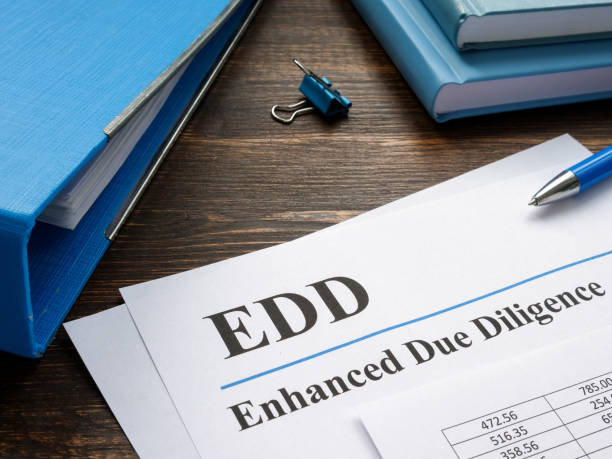Digital transformation has emerged as a pivotal force reshaping various sectors, and compliance is no exception. In an era characterized by rapid technological advancements, organizations are increasingly recognizing the necessity of integrating digital solutions into their compliance
- Home
- Insights
Business Risk Assessment (BRA) is a systematic process that organizations undertake to identify, evaluate, and prioritize risks that could potentially impact their operations, reputation, and financial stability. In an increasingly complex and interconnected world, the importance of
Client Due Diligence (CDD) is a critical process that organizations undertake to understand their clients and the associated risks. This process is not merely a regulatory requirement; it serves as a foundational element in building trust and
Regulated entities are organizations or individuals that operate under the oversight of governmental or regulatory bodies, which impose specific rules and standards to ensure fair practices, consumer protection, and the integrity of markets. These entities can range
The client onboarding process is a critical phase in establishing a successful relationship between a business and its clients. This process encompasses all the steps taken to integrate a new client into a company's systems, ensuring that
The European Union (EU) has established a comprehensive framework of Anti-Money Laundering (AML) laws aimed at combating money laundering and terrorist financing across its member states. This legal architecture is designed to protect the integrity of the
Client Due Diligence (CDD) is a critical process that involves verifying the identity of clients and assessing their potential risks in business transactions. This practice is particularly vital in sectors such as finance, real estate, and legal
The landscape of Anti-Money Laundering (AML) regulations is complex and ever-evolving, presenting significant challenges for financial institutions and businesses alike. A fundamental issue that often arises is the lack of understanding of these regulations among employees at
Due diligence is a critical process that involves the thorough investigation and evaluation of a business or individual before entering into a contractual agreement or financial transaction. This process is essential for mitigating risks and ensuring compliance
Compliance is a critical aspect of any organization, serving as the backbone that supports ethical behavior, legal adherence, and operational integrity. In an increasingly complex regulatory environment, organizations must navigate a myriad of laws, regulations, and industry
Anti-Money Laundering (AML) refers to the set of laws, regulations, and procedures designed to prevent the illegal generation of income through criminal activities. The primary objective of AML frameworks is to detect and report suspicious activities that
Client onboarding is a critical phase in the client relationship lifecycle, serving as the bridge between the initial engagement and the establishment of a productive partnership. This process is not merely a formality; it sets the tone
Client due diligence (CDD) is a critical process that financial institutions, legal professionals, and notaries must undertake to ensure they are not inadvertently facilitating illegal activities such as money laundering, fraud, or terrorist financing. The essence of
Anti-Money Laundering (AML) compliance refers to the set of laws, regulations, and procedures that financial institutions and other regulated entities must implement to prevent, detect, and report money laundering activities. Money laundering is the process of concealing
Enhanced Due Diligence (EDD) is a critical process employed by financial institutions and other regulated entities to assess and manage risks associated with high-risk clients. Unlike standard due diligence, which typically involves basic checks and verifications, EDD
The integration of artificial intelligence (AI) into due diligence and risk assessment processes has revolutionized how organizations evaluate potential investments, partnerships, and compliance with regulatory frameworks. Traditionally, due diligence involved extensive manual research, analysis of documents, and
Risk scoring is a systematic approach to evaluating the potential risks associated with various business activities, particularly in the context of compliance with regulatory requirements. It involves assigning a numerical value to different risk factors, which helps
Politically Exposed Persons (PEPs) are individuals who hold prominent public positions or have significant influence in government, international organizations, or other high-profile roles. The classification of a person as a PEP is not limited to current officeholders;
Anti-Money Laundering (AML) compliance is a critical aspect of the financial and legal landscape, particularly for notaries who often serve as the first line of defense against illicit activities. Notaries are entrusted with verifying identities and authenticating
Due diligence is a comprehensive and systematic process that involves the investigation and evaluation of a business or individual before entering into a transaction or agreement. This process is crucial in various contexts, including mergers and acquisitions,
- 1
- 2

























